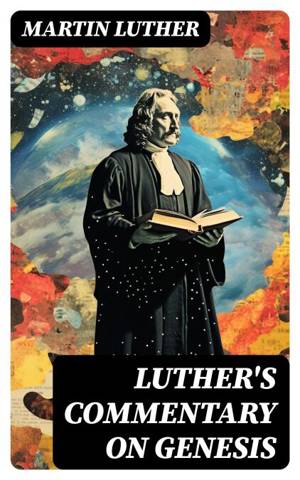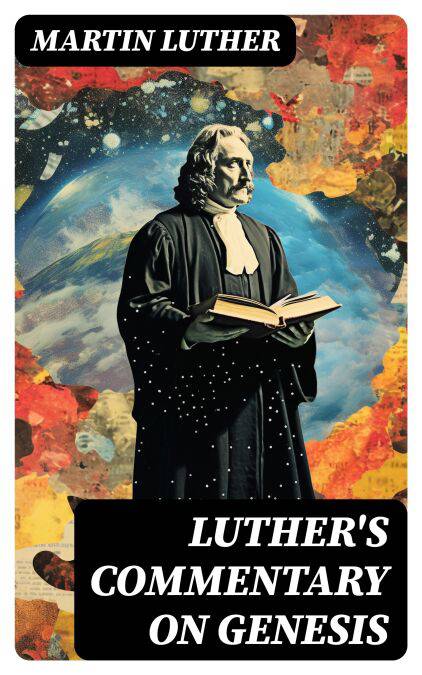
- Afhalen na 1 uur in een winkel met voorraad
- Gratis thuislevering in België vanaf € 30
- Ruim aanbod met 7 miljoen producten
- Afhalen na 1 uur in een winkel met voorraad
- Gratis thuislevering in België vanaf € 30
- Ruim aanbod met 7 miljoen producten
Zoeken
Luther's Commentary on Genesis E-BOOK
Critical and Devotional Remarks on the Creation, the Sin and the Flood
Martin Luther
E-book | Engels
€ 1,99
+ 1 punten
Omschrijving
In "Luther's Commentary on Genesis," Martin Luther presents a profound theological exposition of the Book of Genesis, articulating his revolutionary views on creation, sin, and redemption. The commentary is characterized by a vibrant and accessible literary style that incorporates both rigorous scholarship and heartfelt piety, aiming to bridge the gap between scholarly analysis and devotional reading. Set against the backdrop of the Reformation, Luther's work reflects not only his exegetical insights but also his deep engagement with contemporary theological debates, specifically his opposition to the prevailing scholasticism of his time. As a seminal figure in the Protestant Reformation, Martin Luther's writings stem from his desire to return to a biblically grounded faith. His life experiences, including his journey from an Augustinian monk to a reformer, profoundly shaped his interpretation of Scripture. Luther's emphasis on justification by faith alone and his critique of ecclesiastical authority pervade his commentary, making it a pivotal text in understanding both his theology and the broader Reformation movement. This commentary is recommended for anyone seeking to deepen their understanding of Genesis through a Reformation lens. It provides invaluable insights for theologians, historians, and laypeople alike, as it elucidates critical themes that resonate across centuries, encouraging readers to engage thoughtfully with Scripture and its implications for faith and practice.
Specificaties
Betrokkenen
- Auteur(s):
- Vertaler(s):
- Uitgeverij:
Inhoud
- Aantal bladzijden:
- 709
- Taal:
- Engels
Eigenschappen
- Productcode (EAN):
- 8596547753254
- Verschijningsdatum:
- 13/12/2023
- Uitvoering:
- E-book
- Beveiligd met:
- Digital watermarking
- Formaat:
- ePub

Alleen bij Standaard Boekhandel
+ 1 punten op je klantenkaart van Standaard Boekhandel
Beoordelingen
We publiceren alleen reviews die voldoen aan de voorwaarden voor reviews. Bekijk onze voorwaarden voor reviews.











